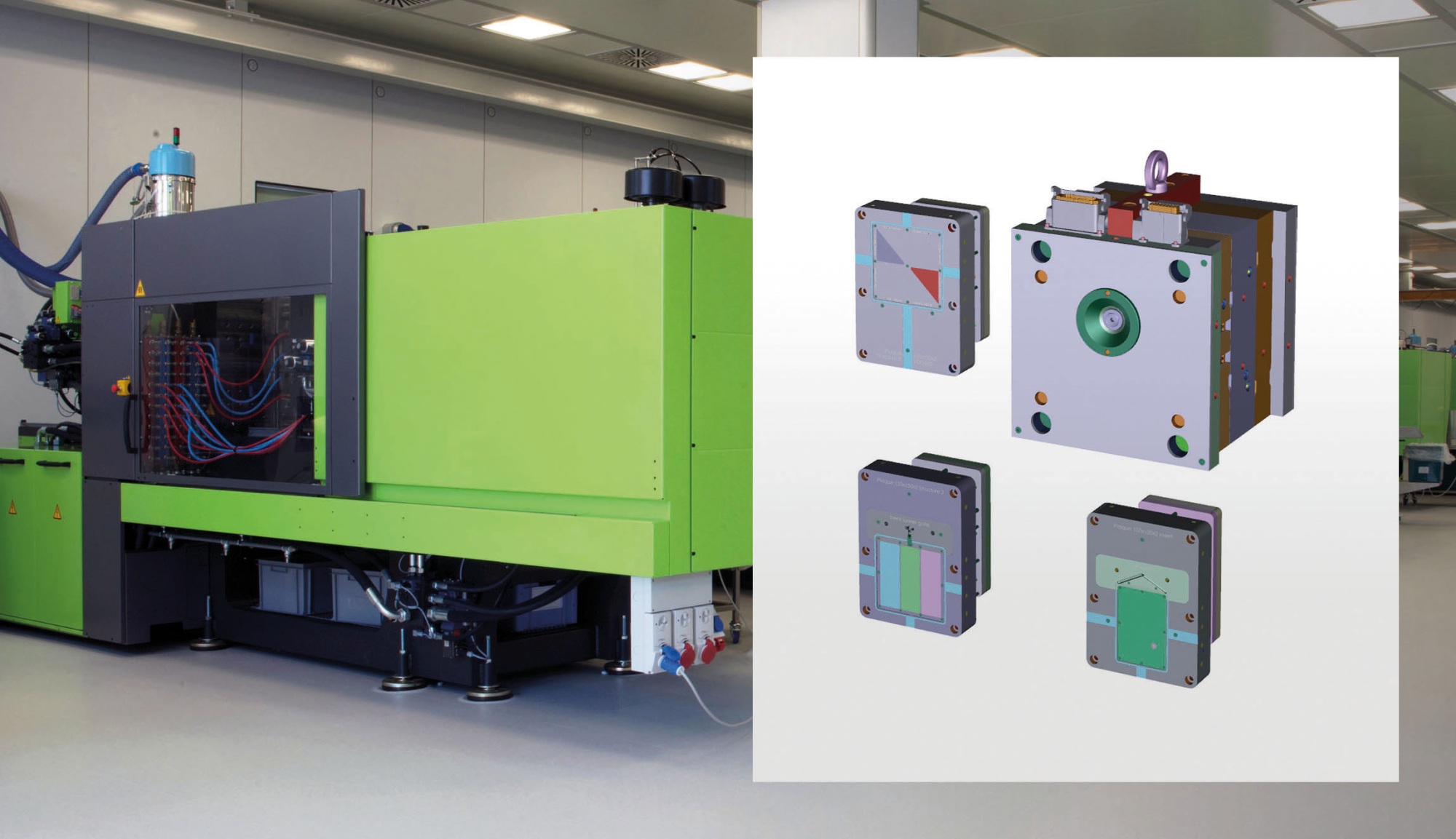Significant Materials Data
The production facilities at KRAIBURG TPE's main site in Waldkraiburg, Bavaria, have been upgraded with a new system. It enables rapid switching between temperature-controlled tooling inserts in injection molding processes, allowing precise data on the fluidity, surface quality, and adhesion of specific material compounds to be obtained. This improves the efficiency of meeting customer needs.
Material demand is constantly increasing, necessitating continuous development and innovation in materials and testing. We've learned the hard way that a standard test plate isn't very useful for validating materials. Aspects such as fluidity and surface quality, in addition to mechanics, are important. In order to cater for these situations and to satisfy customer requirements, KRAIBURG TPE decided to provide different bonding options for each product design. Tools are attached to a new injection molding machine with a locking force of 1,100 kN. They are primarily used for internal Thermoplastic Elastomer (TPE) testing and for preparing test and sample plates of commercial or customer-specified TPE compounds for specialist material testing.
[caption id="attachment_137601" align="aligncenter" width="2000"]

Image: A new system at the main production site of KRAIBURG TPE enables quick changeover between temperature-controlled tooling inserts in injection molding processes in order to gain precise data on the fluidity, surface quality, and adhesion of specific material compounds. (© KRAIBURG TPE)[/caption]
Intelligent sensor technology delivers reproducible data. This information improves the analysis of the injection qualities of the compounds when used in various gating systems. Various surfaces can also be created and analyzed through the use of different tooling inserts. EPDM bonding can also be evaluated according to Guideline 2701 of the Trade Association for the German Rubber Industry (WDK) which was adopted in 2019. This enables both the internal and external requirements of the material to be mapped. Areas that can benefit from this:
- Surface structures for vehicle interiors,
- Evaluating the demolding properties of super soft compounds,
- Determining the actual internal tool pressure.
"The clear advantage of this tool design is its flexibility when investigating significant material data," says Dipl. Ing. (FH) Grit Müller from the Application Engineering Team at KRAIBURG TPE. "This enables new TPE compounds to be examined more accurately."
The system and interchangeable inserts were developed and created in collaboration with Konstruktionsbüro Hein and Monz Werkzeugbau. It was a challenge to integrate the various gating systems with the shortest possible set-up times. The inserts are designed for the production of application-specific sample plates. The design is flexible and can also be adapted to fulfill new requirements in future.
Note: Content may be edited for style and length.
Source

 Image: A new system at the main production site of KRAIBURG TPE enables quick changeover between temperature-controlled tooling inserts in injection molding processes in order to gain precise data on the fluidity, surface quality, and adhesion of specific material compounds. (© KRAIBURG TPE)[/caption]
Intelligent sensor technology delivers reproducible data. This information improves the analysis of the injection qualities of the compounds when used in various gating systems. Various surfaces can also be created and analyzed through the use of different tooling inserts. EPDM bonding can also be evaluated according to Guideline 2701 of the Trade Association for the German Rubber Industry (WDK) which was adopted in 2019. This enables both the internal and external requirements of the material to be mapped. Areas that can benefit from this:
Image: A new system at the main production site of KRAIBURG TPE enables quick changeover between temperature-controlled tooling inserts in injection molding processes in order to gain precise data on the fluidity, surface quality, and adhesion of specific material compounds. (© KRAIBURG TPE)[/caption]
Intelligent sensor technology delivers reproducible data. This information improves the analysis of the injection qualities of the compounds when used in various gating systems. Various surfaces can also be created and analyzed through the use of different tooling inserts. EPDM bonding can also be evaluated according to Guideline 2701 of the Trade Association for the German Rubber Industry (WDK) which was adopted in 2019. This enables both the internal and external requirements of the material to be mapped. Areas that can benefit from this: